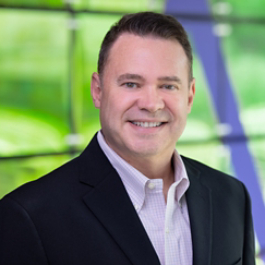Trane Technologies is guided by a global council of sustainability thought leaders focusing on infrastructure development, energy policy, and technology. Their expertise ultimately helps us provide more innovative products and solutions and create a less impactful operational footprint.
Center for Energy Efficiency & Sustainability
As a purpose-driven company, we have an opportunity to lead our industry in sustainability best practices. Our vision of a sustainable world is guided by expertise we've built from experience and elevated by partnerships that advance our ambitions.
About CEES
Established in 2010 - before sustainability was on global business agendas - our Center for Energy Efficiency and Sustainability (CEES) integrates sustainability practices into our everyday operations. They facilitate our work with governments, NGOs, universities, and industry leaders and track and disclose our progress against commitments - while carefully monitoring emerging requirements and ESG trends.

Meet the Center for Energy Efficiency & Sustainability Leader

Scott Tew is the founder and leader of the Center for Energy Efficiency & Sustainability at Trane Technologies (CEES), which supports the company’s strategic brands, including Trane and Thermo King, and is responsible for forward-looking sustainability initiatives. Since the CEES was formed in 2010, the company has successfully met or exceeded its long-term goals in energy use and waste reduction, while embedding sustainability in all parts of the product development process. Key initiatives have also included launch of employee engagement and competency building programs and materiality assessments to ensure sustainability focus is in line with business drivers. The company has appeared as a top performer in both the U.S. and World Rankings for the Dow Jones Sustainability Indices (DJSI).
Scott holds graduate and undergraduate degrees in environmental science and ecology from Livingston University. He contributed to the recently released book, Practicing Sustainability, by Springer Publishing.
Roger Ballentine is an internationally-recognized expert and thought leader on how private sector leaders can incorporate environmental and sustainability strategies into business practices in ways that enhance competitive advantage and deliver value to customers, shareholders and stakeholders. He has advised U.S. Presidents, corporate CEOs, and private equity investors on the intersection of policy drivers, energy market dynamics and best business practices. Roger has served on the board of directors for more than a half of dozen public and private corporations and is a Venture Partner with Arborview Capital LLC.
George Bandy Jr. is a global leader in environmental sustainability, circular economy and social responsibility, he has been responsible for executing the comprehensive concepts and practices of sustainability throughout several corporations, nonprofits and brands. He proactively identifies opportunities to position environmental, economic and socially responsible solutions for both the organizations and its customers so that, together, they can demonstrate the type of sustainability leadership that will result in a brighter future for all. George is highly sought after as a presenter on key topics such as the business of sustainability, biophilic design, social sustainability, circular economy, greening the supply chain, health and wellness in the built environment and innovative smart and healthy design. Recently George was recognized as a 2020 Living Future Hero, in 2018 he was a USGBC Leadership Award recipient and was also honored with the inaugural Green Step People Award. George currently serves as the Head of Circular Economy at Amazon Worldwide where he his role is “to assure that all of the “finite materials globally” managed by Amazon remain in a technical or biological loop allowing us to remain Earth’s most customer centric company.”
George is the former Chief Sustainability Officer for Mohawk Industries 2016-2020), prior to that he was the Vice President of Sustainability for Interface (1999-2016); George also served as the Sustainability Officer for the University of Texas Health Science Center in Houston from 1994-1999. George currently serves on the board of directors for Green Business Certification Inc. (GBCI), an organization that independently recognizes excellence in green business industry performance and practice around the world. George was also just appointed to the IIDA Board of Directors a not-for-profit organization advancing sustainable interior design globally. He is the former chairman of the board of the U.S. Green Building Council (USGBC) and has also served on the board of Second Nature, a nonprofit that champions for higher education institutions to make the principles of sustainability fundamental to every aspect of learning. George received his bachelor’s degree in English from Morehouse College. Additionally, George holds LEED Accredited Professional certification from USGBC. He is a native of Opelika, Alabama.
Marian Chertow is associate professor of industrial environmental management and has been director of the industrial environmental management program at the Yale School of Forestry and Environmental Studies since 1991. Her research and teaching focus on industrial ecology, business/environment issues, waste management, and environmental technology innovation.
Prior to Yale, Marian spent ten years in environmental business and state and local government. She is a frequent international lecturer and has testified on waste, recycling and other environmental issues before committees of the U.S. Senate and House of Representatives. She serves on the founding faculty of the Masters of Science in Environmental Management Program at the National University of Singapore where she teaches “Business and Environment” and is a visiting professor at Nankai University’s National Center for Innovation Research on Circular Economy in China.
Stu currently serves as the Grossman Chair in Sustainable Business at the University of Vermont. His immediate past post was as the S.C. Johnson Chair of Sustainable Global Enterprise and Professor of Management at Cornell University’s Johnson Graduate School of Management, where he founded the Center for Sustainable Global Enterprise. He also serves as Distinguished Fellow at the William Davidson Institute (University of Michigan) and President of Enterprise for a Sustainable World.
Before joining Cornell, he was the Hans Zulliger Distinguished Professor of Sustainable Enterprise and Professor of Strategic Management at the University of North Carolina’s Kenan-Flagler Business School, where he founded the Center for Sustainable Enterprise and the Base of the Pyramid Learning Laboratory. Previously, he taught corporate strategy at the University of Michigan’s Ross School of Business and was the founding director of the Corporate Environmental Management Program (CEMP), a joint initiative between Michigan’s Business School and School of Natural Resources and Environment (now the Erb Institute’s Dual Master’s Program).
Professor Hart has published over 70 papers and authored or edited seven books, with over 5,000 Google Scholar citations in all. He wrote the seminal article “Beyond Greening: Strategies for a Sustainable World,” which won the McKinsey Award for Best Article in Harvard Business. With C.K. Prahalad, Hart also wrote the path-breaking 2002 article, “The Fortune at the Bottom of the Pyramid,” which provided the first articulation of how business could profitably serve the needs of the four billion poor in the developing world. With Ted London, Hart is also the author of a newly released book entitled Next Generation Business Strategies for the Base of the Pyramid. His best-selling book, Capitalism at the Crossroads, was selected by Cambridge University as one of the 50 top books on sustainability of all-time; the third edition of the book was published in 2010.
Claus Pedersen currently serves as Head of Corporate Sustainability for Novozymes A/S, a global firm known for its sustainability leadership. Novozymes is the world leader in industrial enzymes and microbe with solutions that enable optimization of manufacturing processes and products in several industries including bioenergy, food, textiles, and agriculture. Claus has extensive experience with practical integration of sustainability across a variety of business functions from Sourcing and R&D, to Sales, Marketing and Investor Relations and he has worked in many different geographies and cultures—from Europe, Middle East, Asia, and Southern Africa to South & North America. Under Claus’ leadership, sustainability is increasingly becoming a differentiator for Novozymes.
Claus holds an M.Sc. in Chemical Engineering, a Ph.D. in Sustainability Management, and he is appointed Honorary Professor at the University of Aalborg and the Copenhagen Institute of Technology. Throughout his career, Claus has been focused on making sustainability a business driver and he has developed practical and value adding ways to integrate sustainability into the business. Before joining Novozymes, Claus was leading the Global Sustainability and Quality activities of the Hartmann Packaging Group. Prior to that he worked as a sustainability consultant at the Institute for Product Development, Denmark, where he was an early leader in Life Cycle Assessment (LCA) methodology development initiatives.
Katherine Sierra is an expert in sustainable infrastructure and climate change in developing economies, and provides advisory services to public and private sector organizations on these topics. Katherine is also a senior fellow at the Brookings Institution, focusing on climate change and energy. Until June 2010, she was vice president for sustainable development at the World Bank, where she served for more than thirty years. She oversaw the bank’s global environment, infrastructure (including energy, transportation and water sectors), urban development and agricultural activities. She also led the World Bank’s climate change strategy – including creation of the $6.5 billion Climate Investment Funds and management of $2.5 billion in Carbon Finance funds. She was the Bank’s spokesperson on climate change, and represented it at the United Nations Framework Convention on Climate Change high level meetings and at the G-8 and G-20 on climate and environment issues.
Katherine is a frequent speaker on the issues surrounding development and climate change. She has considerable country experience in East Asia, including managing the urban and environment programs for China, and in Latin America. She has a Bachelor’s degree from the University of California; a Master’s degree in city and regional planning from Harvard’s Graduate School of Design, and is a graduate of the Harvard Business School’s General Managers Program.
Daniel Vermeer directs Duke University's Center for Energy, Development, and the Global Environment (EDGE), a dynamic initiative focused on accelerating progress toward a sustainable energy system that can meet the global demand for energy, resources, and improved quality of life. Through research, outreach, and education, EDGE identifies the most promising pathways toward this goal, works with leading firms to drive innovations across their value chains, and helps seed partnerships that can facilitate these transformations.
Daniel joined Duke from The Coca-Cola Company, where he led the Global Water Initiative, an industry-leading effort to formulate and implement a comprehensive approach to protecting the quality and availability of the company's primary ingredient. He is the founder and chief architect of the Global Water Challenge, a multi-partner organization for innovative water and sanitation initiatives. He holds a Master’s degree from the University of Virginia and a Ph.D. from Northwestern University.
Andrew Winston is a globally recognized expert on how companies can navigate and profit from humanity’s biggest challenges. Andrew’s first book, Green to Gold, was the top-selling green business title of the last decade, selling over 100,000 copies in seven languages. Inc. Magazine included Green to Gold on its all-time list of 30 books that every manager should own.
As founder of Winston Eco-Strategies, Andrew’s views on strategy have been sought after by many of the world’s leading companies, including Boeing, HP, J&J, Kimberly-Clark, PepsiCo, PwC, and Unilever.
Andrew has written three business strategy books - Green to Gold, Green Recovery, and now The Big Pivot. He is a regular blogger and contributor to Harvard Business Review online, the Guardian, Huffington Post, and his own popular blog at www.andrewwinston.com. His latest book, The Big Pivot, has been selected among the "Best Business Books of 2014" by Strategy+Business magazine. The book provides a practical roadmap to help leaders build resilient, thriving companies and communities in a volatile world. He is also author of the Harvard Business Review Magazine cover story, “Resilience in a Hotter World.”
Andrew’s work is based on significant business experience and education. His earlier career included advising companies on corporate strategy while at Boston Consulting Group and management positions in strategy and marketing at Time Warner and MTV. He received his BA in Economics from Princeton, an MBA from Columbia, and a Masters of Environmental Management from Yale. He lives in Greenwich, CT with his wife and two sons.
Terry F. Yosie joined the World Environment Center in October 2006 as the President & CEO. In this capacity, he develops and implements strategies to achieve this global non-profit organization’s mission to implement sustainable development through the business strategies and operations of global companies in partnership with government agencies, non-governmental organizations, universities and other stakeholders. WEC’s principal areas of focus have included climate change and energy efficiency, enterprise development, greening the supply chain, innovation, and preparing future business leaders to implement sustainability.
Dr. Yosie has held senior-level management positions in government, corporate and consulting organizations. Dr. Yosie currently serves on the National Research Council’s Committee on Scientific Tools and Approaches for Sustainability to advise the U.S. Environmental Protection Agency. He is the author of more than seventy professional publications and co-editor of a book entitled, Sustainable Environmental Management. He has lectured at Carnegie Mellon University, Dartmouth College, Duke University, Harvard University and Técnologico de Monterrey. He received his Doctorate in Humanities and Social Sciences from Carnegie Mellon University in 1981 and received its Alumni Achievement Award in 2013.
Eric Rankin is the vice president of environmental, health and safety (EHS) for Trane Technologies. He is a member of the Supply Chain and Operational Services leadership team. He also serves on the external advisory board for sustainability. Eric has overall responsibility for strategic leadership on global environmental, health and safety matters at Trane Technologies. Responsibilities include the development and deployment of policies and programs to reduce occupational injuries; ensure compliance with federal, state and local laws; minimize the company’s impact on the environment by reducing emissions, waste and water consumption; perform due diligence and assess long-term liabilities for potential acquisitions or divestitures; and deliver responsible care for long-term environmental liabilities.
Since joining the company in November 2013, Eric has been instrumental in the development of the EHS business operating system, has delivered year-over-year double-digit reductions of lost time incident rate, and was an integral part of developing the company’s 2020 Climate Commitment. With his leadership, the company exceeded its goals of a 35% reduction greenhouse gas emissions from operations.
Prior to joining the company, Eric was the manager of global EHS programs at General Electric (GE) for GE Appliances. Before that, he held a number of leadership roles across several GE businesses. Eric has a bachelor's of science degree in environmental health from Indiana University of Pennsylvania in Indiana, PA.
We also participate in multiple coalitions working together with like-minded companies in the pursuit of a better planet. These coalitions help keep us accountable as we strive to accomplish our goals.

RE100 & EP100
Trane Technologies is a member of RE100, with a goal to source 100% renewable electricity by 2040, and a member of EP100, with a goal to double our energy productivity by 2035 from a 2013 baseline.

First Movers Coalition (FMC)
Trane Technologies is an inaugural member of the First Movers Coalition launched in 2021 at the Conference of the Parties (COP26) in Glasgow, Scotland. FMC members agree to set an ambitious purchasing target for a hard-to-abate material. We have committed to purchasing at least 10% near-zero carbon steel by 2030 and to encourage others to follow our lead.

Race to Zero
In 2021, Trane Technologies joined this global campaign from the UNFCC to rally leadership and support from businesses, cities, regions, and investors for a healthy, resilient, zero-carbon recovery that prevents future threats, creates decent jobs, and unlocks inclusive, sustainable growth.

OneTen Coalition
Trane Technologies is a founding member of the OneTen Coalition, a coalition of more than 30 business leaders committed to training, hiring, and advancing one million Black Americans over the next 10 years.

Paradigm for Parity
Trane Technologies is a member of the Paradigm for Parity, a coalition of business leaders, board members, and academics who are committed to addressing the gender gap in corporate leadership.

Disability:IN
Dave Regnery, our Chair and CEO, signed the Disability:IN CEO Letter in 2021, extending Trane Technologies’ commitment to advance equality and inclusion for all. Disability:IN envisions a global economy in which people with disabilities participate meaningfully and fully.
In addition to our own resources, we leverage market intelligence, updates on global discussions, and information on evolving technology.
- Trane Technologies 2022 ESG Report
- Trane Technologies Gigaton Playbook
- Project Drawdown
- Business Council for Sustainable Energy (BCSE) Sustainable Energy in America Factbook
- DOE Better Buildings Solutions Center
- World Business Council for Sustainable Development: Net-zero buildings report
- Energy Efficiency Impact Report – American Council for an Energy-Efficient Economy, Alliance to Save Energy, Business Council for Sustainable Energy

 English
English